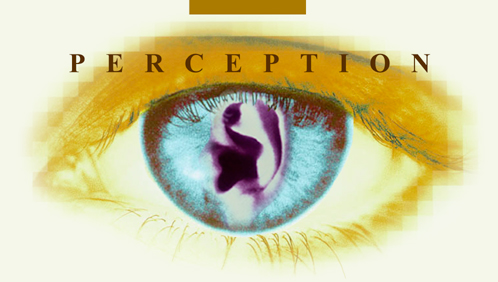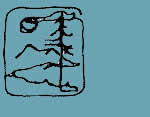
| go to fall quarter |
| home |
| announcements |
| syllabus |
| assignments |
| resources |
| contacts |
| catalog copy |
 |
|
Catalog copy
Perception
Fall and Winter 2003-04
Although
in some sense we and the animals that we share the planet with all live
in the same world, we don’t experience it in the same way. Even
different people can register the same place quite differently. Yet
we think that we do hear and see and taste the same things, and that
works of art can communicate how someone else experienced the world
long ago or far away from us.
We’ll
explore the biology and psychology of human and animal perception through
experiential exercises, observation and some drawing, as well as regular
labs, lectures and readings. We’ll study and talk about how the
arts structure or transform our ordinary perceptions (especially vision
and hearing). Our readings will explore the range and variation of sensory
experience and how artists use it through literature such as To
the Lighthouse or Perfume or Basho’s haiku; studies
of cultural, historical and individual variation in perception such
as A Natural History of the Senses or The Man Who Mistook
His Wife for a Hat ; and some readings on the philosophy of mind
and recent attempts to build autonomous robots. We’ll also analyze
relevant films such as Blue or City of Lost Children
each week.
Credit awarded in: biology, literature, art history, cognitive psychology, expository writing and quantitative reasoning.
Total: 16 credits each quarter.
Program is preparatory for: careers and future studies in biology or environmental studies, literature or other humanities, psychology, anthropology and work with visual images.
Special
Expenses: Approximately $50 for a program retreat, and perhaps
a little additional money for drawing supplies.
Faculty: Nancy Murray (biology), Thad Curtz (literature and developmental
psychology), Charles Pailthorp (philosophy).
This
is a full time program, the equivalent of a standard 16 credit class
load. You should expect it to take about 45 hours a week altogether.
In a typical week, you’ll spend about fifteen hours in class,
four hours in a school working with kids, five hours writing, a few
hours working on your research project, and fifteen hours a week or
so on the reading.
Though
it isn’t yet signed and sealed, our current plan for the general
shape of the program looks like this:
One of the strands of our fall work will be about how children think about their perceptions of the world; we’ll be studying Piaget and other cognitive psychologists, and if we can work out the arrangements, we’ll be spending half a day on Wednesday in a local school with kids – first observing them and then doing some interviews with them. A second strand will be reading, discussing and writing about works of literature, art history and philosophy that explore sense experience – roughly a book a week. The third strand will explore the biology of perception; some of this will involve lectures and readings; some will involve experimenting with our senses – playing tricks on them that produce illusions and then working together to try to figure out what we can learn from such extraordinary experiences about how we construct the ordinary sensory world.
Fall quarter
Winter quarter
Seminar Readings on Social and Cultural Variations in Perception Lived worlds of animals Developmental biology Images in art and dreams Individual research and presentation
If we get the rooms that we’ve asked for, we’ll be meeting all day Monday (for experiential workshops and laboratories exploring how our senses work), all day Tuesday (for lectures in the morning and small group seminar discussions in the afternoon), and all day Thursday (for a film and discussion of it in the morning and another seminar on the readings in the afternoon). We will also be going away on retreat from Tuesday morning through Thursday morning the second week of the quarter ; expenses will be $16 for lodging and your share of our food budget – probably around $50 all together. You’ll need this money the first week of school, and you’ll need to plan to be gone for these three days (two nights). (If this will pose problems for you because of childcare or other issues, you should consult with us.
There’ll be a small individual research project fall quarter – on some extraordinary sensory experience (not one of your own) – and a presentation at the end of the quarter for the rest of the program that tries to communicate this experience and what you’ve learned about it to the rest of us. In the winter, there will be a more ambitious individual research project – on the life and work of an artist of your choice – and a similar presentation to the program about your project.